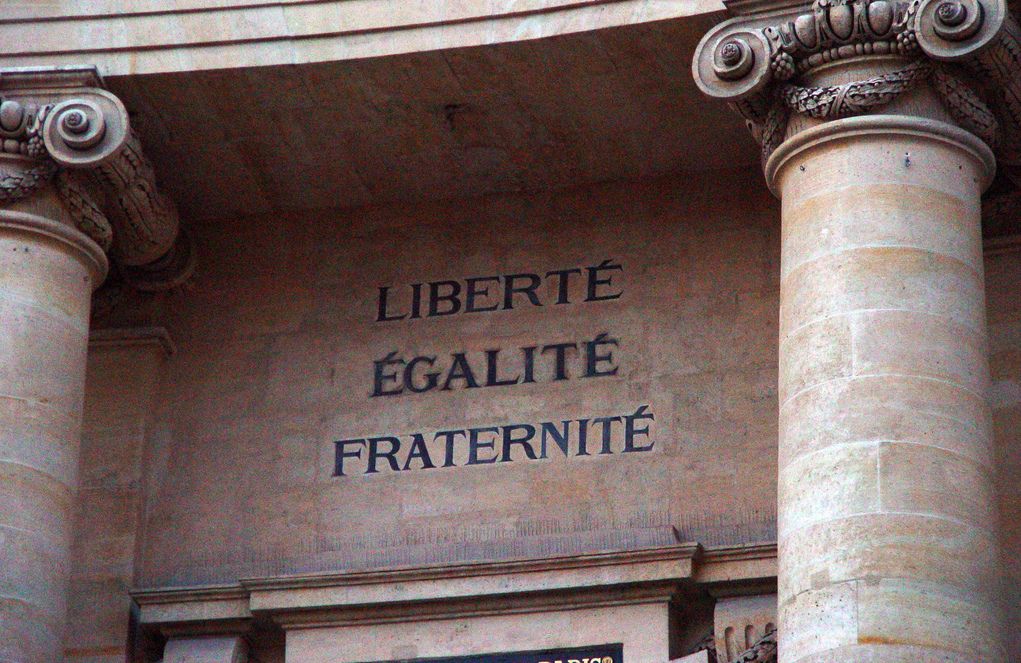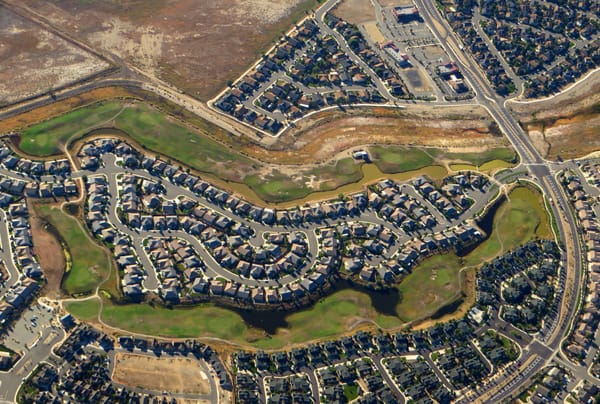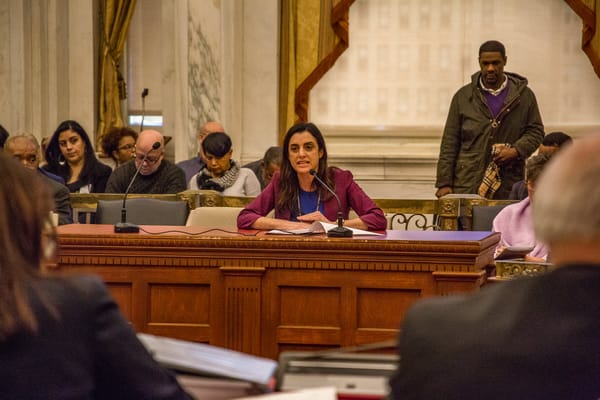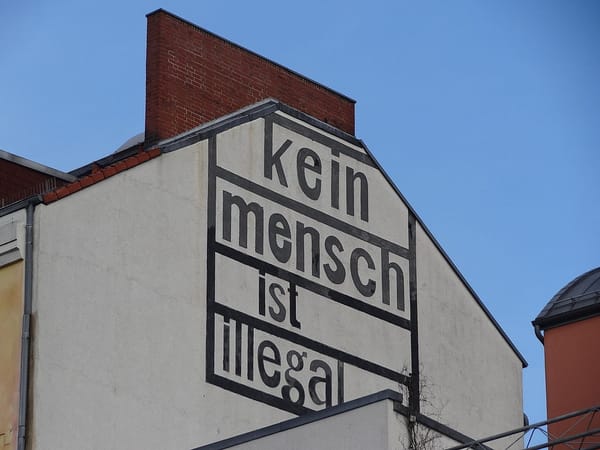The Identity Paradox: Liberalism, Tolerance, and the Challenges of Recognition

In the wake of the maelstrom (or, perhaps, horrific dumpster fire) that has marked our entry into a worrying, dark timeline, there’s been much discussion over the relative value of identity politics. One primary conflict is played out again and again: does identity politics require mere toleration or strong affirmation? Rather than taking a side there, I would like to discuss what identity politics is about, and what liberalism may need to integrate from it, as well as what it may need to reject. What is it about identity that both valuable as well as difficult for liberalism?
Mark Lilla has argued that the liberal embrace of group identity as a central political concern has created a catalyst for an interest by white ethnics in their own representation:
…the whitelash thesis is convenient because it absolves liberals of not recognizing how their own obsession with diversity has encouraged white, rural, religious Americans to think of themselves as a disadvantaged group whose identity is being threatened or ignored. Such people are not actually reacting against the reality of our diverse America (they tend, after all, to live in homogeneous areas of the country). But they are reacting against the omnipresent rhetoric of identity, which is what they mean by “political correctness.” Liberals should bear in mind that the first identity movement in American politics was the Ku Klux Klan, which still exists. Those who play the identity game should be prepared to lose it. We need a post-identity liberalism…
Thus, one might say that the push towards identity by liberals is at least in some way responsible for the recent waves of nativism currently sweeping over the West.
On the other hand, as Jacob Levy forcefully replied, liberalism cannot escape identity politics, since identity is tied up so heavily with struggles for the core political values that liberalism of any stripe is built upon:
The disproportionate impact of mass incarceration and aggressive policing on African-Americans isn’t some unfortunate side-effect of well-intentioned policies. The politics of drug prohibition, the war on drugs, and the subsequent expansions of police power and imprisonment were never racially innocent to begin with, and it is no accident that Nixon launched the War on Drugs when the ink was barely dry on the formal end of Jim Crow segregation and disenfranchisement.
Thus the mass incarceration of African Americans is not the result of “some simple intellectual mistake” but “is deeply tied up in American racial politics.”
By contrast, liberal critics of identity politics are justly concerned that to take identity on means to distinctly affirm it, to demand preferential treatment for some forms of living over others, and for moving beyond an ethic of personal autonomy and mutually held, individual moral duties. As Tom G. Palmer has noted, the new revival of identity presents a challenge to liberalism if it entails a refusal to affirm a common humanity, tied up with dreams of a golden age of exclusive solidarities within the bounds of particular national groups or ethnic tribes. The campus speech controversies present a lower-stakes example than ethnic nationalism. In these cases, the degree of offense on the part of the listener becomes the metric for appropriate discussion, rather than the right of the speaker to have their perspective and self-expression taken into account. The fear is that social hierarchies will be rebuilt, that what seem to be reasonable initial concerns for protecting minorities could become catalysts in the retribalization of the common spaces. To these liberal critics, it seems that identity is being used as means to control the basic freedoms liberalism is meant to safeguard.
Pro-identity liberals have offered the rejoinder that what we want are simply harm-principle norms and individual rights protections applied more broadly. I take this to be case presented by Levy. We cannot talk about making life better for women, racial and religious minorities, LGBTQI people, and others, without looking at the ways in which they are oppressed by different systems precisely because they belong to one or more of those categories. Paul Crider describes something similar, in the identity-friendly part of his own manifesto.
To summarize, a liberal worry about identity politics is that it threatens tolerance and recreates group enmities. Liberal support for identity politics is built on seeing where liberal equality is violated and attempting to rectify it by pointing out that certain identities have been systematically denied the liberal ideals of justice and equality.
The rise of recognition
It would seem that identity is something liberals can’t entirely do with, but they can’t really do without, either. This seeming paradox stems from the dual role of respect in both classic liberal toleration and contemporary liberal recognition. To affirm an ethic of mutual toleration means to respect each other, but to respect can also mean to affirm as inclusively valuable.
For example, suppose that I move into your neighborhood, and that we are from different cultures and backgrounds. You invite me over for dinner or a common potluck, where we each contribute food from our respective ethnic or social groups. We share in a common project, and in doing so, you pay tribute to me as a significant member of a shared community. By contrast, imagine that instead when I move in, you note the fact of our differences and don’t invite me to participate in a common social event, but are merely polite and ask me to keep the grass clippings on my side of the fence. You might not get in my business, but you also don’t really care much about me as a member of civil society.
The former model takes on the idea of identity as an essential component of liberalism as a conduit for social cooperation within the kind of voluntary associations that would make Tocqueville proud. In recognition of my identity, you respect my presence, and indeed, respect me as a person generally by considering me for the chance to partake in an interactive social experience. You embrace me, and in doing so, you affirm who I am.
The latter disregards affirmation entirely, as will be explored in more length in the section on toleration below.
In his seminal essay The Politics of Recognition, Charles Taylor discusses the shift in modern political discourse away from a notion of tolerance, towards a perspective of recognition. Such a politics demands special respect for a specific group identity as valuable, alongside a general concept of individual worth as a member of said group. By contrast, toleration is built on an agreement to live together in society as a cooperative venture for mutual advantage, despite strong objections to other ways of living and being. Recognition says: Include me, approve of me, celebrate me. Tolerance says: Agree to live around me, I’ll do the same for you, and we’ll leave each other alone. On Taylor’s account, identity politics, and multicultural values generally, developed in the wake of a struggle for dignity in social history. This dignity was in part rooted in the groups that we affiliated with as a part of a search for our own individual, authentic selves. We sought a greater sense of our own personhood and autonomous capacities through the fusing of perspective horizons between ourselves and others. Crucially, this process is built on an appreciation of the backgrounds in which different people are situated.
We often achieve tolerance through recognition, by saying that certain ways of being, living and identifying are good. We say that they are worthy of regard, that they add to our communities and our existences, not just that they aren’t a problem or a hindrance. Within such a system, the private-public distinction gets blurred, as we begin to move beyond the avoidance of conflict as simply a matter of interpersonal transactions costs, in which we manage the colliding boundaries of separate worlds. At the same time, we move towards a notion of a shared social ecology.
To show respect to one another means in part to take seriously those aspects that go beyond our status as abstract individuals. When we consider each other as free, separate, equal persons, we do so in part by looking to the different aspects of what make us up. Our personal identity then, is not just our own characteristics, divorced from context, but the groups with which we affiliate, identify with, and with whom we may be externally identified as a member. On a more individual level, respect for a person’s dignity is in part a value of inclusion, not purely one of tolerance. On a broader, societal level, peace and cooperation between communities has similarly inclusive components (see the invention of a so-called “Judeo-Christian” tradition, and then the idea of “faith communities” more generally as a way to expand the circle of empathy). Liberalism, (and perhaps toleration) incorporates aspects that might be called communitarian.
Consider the growth in acceptance of LGBTQI people. According to many sociological accounts, acceptance stemmed not only as a matter of sufferance or the spread of individualism, but from identifying such lifestyles as part of a broader community project of family building, of knowing people as friends and neighbours, as coreligionists, from positively affirming, normalizing media representation, and other changes that were seen as part of the basic fabric of society.
The plea for recognition comes out of the struggle for justice, in which the universal appeals to respect individual rights have failed. But it also stems from a sense of what social cooperation is, and should be about, about rights as a function not only of who we are as humans, but who we are as a community. Thus, it’s almost an inevitability that politics has built within it a structure of group bargaining at its most manageable, and group power-play at its worst.
As Levy notes:
There is something particularly absurd in the post-election morality plays that say ‘whites [or white Christians, or white Christian men] have now learned how to do identity politics and how to vote like an aggrieved ethnic group, because that’s what other groups have been doing all these years.’ White identity politics is a constitutive fact of American politics and if an election in which the Republican got the normal share of the white vote counts as white identity politics in action, well, that suggests a deep problem, but it doesn’t suggest a new problem.
The question of toleration
The struggle for recognition is a powerful story, one for which I have some sympathy. However, despite the core focus on inclusivity, I will argue that this struggle actually extends the liberal individualist project, rather than wholly subsuming into identity as defined by groups.
Initially, it would seem that liberal toleration and the struggle for recognition are directly at odds. After all, Deirdre McCloskey’s story of economic growth and Stephen Pinker’s narrative of the decline of violence, to cite two examples, involve ways in which people are treated as valuable as individuals-qua-individuals, in direct contrast to their supposed previous place in a “great chain of being.” The latter emphasized belongness right down to the metaphysical level, whereas the former champions individual choice against the demands of traditional communities.
Furthermore, as Andrew J. Cohen and others have pointed out, much of toleration is in many ways built not on affirming the beliefs or lives of others, but simply on defending their right to disagree. Our agreement on rules coordinates us to ensure civil peace, not inclusion. There is an impersonalism about tolerance, in which we simply “go along to get along” or “live and let live.” Tolerance says I don’t need to recognize you, just to respect your space. Tolerance is the neighbor who respects your property lines, rather than the one who invites you to a potluck. My primary duty in this framework is to disregard how you live, so long as it does not present an obstacle to my own goals.
The Nobel-winning economist and influential social theorist James M. Buchanan gave voice to this notion in The Limits of Liberty (my emphasis):
Economic exchange among persons is facilitated by mutual agreement on defined rights. Both parts of this principle must be satisfied. Individual rights must be well defined and non-arbitrary, and, in addition, these rights must be recognized and accepted by participants. If rights are known to be well defined and non-arbitrary but if knowledge about them is available to persons only on considerable investment in information gathering, many exchanges that are otherwise mutually beneficial may never come into being. Once both parts of the principle are met, however, once the limits of each person’s rights are defined by agreement, economic interchange becomes almost the archetype of ordered anarchy. Individuals can deal with one another through wholly voluntary behavior without coercion or threat. They can enter into and complete exchanges without detailed knowledge of the political persuasions, sexual attitudes, or economic statuses of their actual trading partners. The traders may be unequal in any or all of such descriptive characteristics, yet they can and do deal with one another as equals in the exchange itself.
Furthermore, he continues:
In this classic sense, economic exchange is wholly impersonal, which seems to be precisely the ideal-type interaction embodied in ordered anarchy. Each person is treated strictly as he is, and presumably as he wants to be, in such a relationship. The [fruit stand] operator may beat his horse, shoot dogs, and eat rats. But none of these qualities need affect my strictly economic trade with him.
For Buchanan, trade is a key arena helping to delineate the structure of toleration. This is because economic exchange, as a proxy for social cooperation generally, is possible only with clear boundaries, accomplished by presenting clear definitions of rights and obligations. Furthermore, trade removes personal characteristics from holding center stage- we are all equal in the pursuit of profitable exchanges. In this paradigm, the market can be said to exemplify the structure of liberal tolerance, through arranging our interactions within what I sometimes think of as “normative Coaseanism.” In this paradigm, we manage different social spheres by adjudicating between individual spaces and safeguarding against externalities. Toleration then, is a matter of peaceful agreement to make gains from cooperation where possible, and the sufferance of diversity as the price of that benefit.
It should by now be clear that identity recognition challenges toleration by creating narrative exclusivity. This is where tribalist nativism, xenophobia, and social divisions re-emerge, from the horror of the Wars of Religion, to fascism and racism both classical and contemporary, to the much milder form of the “culture wars.” To include in this sense necessarily also means to exclude, to morally and politically prioritize- thus the current state of the African American community, the poor treatment of Muslim and Arab Americans, and others. This is where the identity game gets ugly.
Historically, we have also seen the development of tolerance via the removal of identity from the public square. In the growth of modernity, religious belief becomes privatized, church and state separate, and expressing conscience within one’s personal rather than public life become respected and valued. Early justifications for this can be found in the writing of John Locke, notably in his justly famous A Letter Concerning Toleration in which religious doctrine and truth is only meaningful when freely chosen, a precursor to the later, more radical epistemological uncertainty over what is true or valuable in life. This view affirms the right to “agree to disagree” found prominently in thinkers like John Stuart Mill. Civil peace in the West came also from a building of separate spheres, of an agenda against identity.
For many liberals, a key problem is that identity seeks to define us in ways that return us to social forms with which liberalism is philosophically less comfortable. Liberalism grows at least in part out of a critique of identity, specifically as expressed in certain thickly embedded, less individualistic, less autonomous forms (strong religious authority, national ties, divisions of race, class, gender, etc.). Liberalism, socially and morally, says that that we are, or certainly ought to be- free and equal agents, acting as deliberative choosers of our ends in an openly cosmopolitan environment. This is the story we find in both utilitarian liberals such as Mill, and in deontologists like Kant.
Economically, the liberal tradition has tended to argue that identity is strongly felt where social mobility is not, social progress is where we are less defined by our family background and the communities from which we originate, and far more by our value in choice-oriented social spheres. While certainly not atomistic (as often accused by its critics) liberalism’s focus on the languages of rights or individual utility has a distinctive structural bent, in service of autonomy and self-direction. In this framework, identity functions as a feature of chosen preference, rather than as emergent from a determined background.
Between the camps
How might this conflict be resolved? I think at least at the philosophical level, we should take seriously the weight of both the tolerance and the recognition positions as valuable normative poles in the liberal project.
Liberals should recognize the thickly embedded nature of social interaction within communities, such that social cooperation is in part determined by the role that people play for who they are, not just that they are. The process of public inclusion makes an appeal to the justification of what role we play as socially interwoven agents with meaningful views about how to live, and particular communities of which we are a part. In more distinct political terms, truly universal appeals are hard to make: firstly because focusing on common, society-wide problems is often ignorant if not callous of particular group challenges, as easily epitomized by the blind rhetoric of reactionary slogans such as “All Lives Matter;” and secondly because it can alienate citizenry by failing to address them as members of society with particular features and seeming to exclude people as they exist contextually, as members of a community seeking civic affirmation.
Thinking about “politics” is perhaps of some use here. The classical Greek notion of citizenship as a member of the polity, or more contemporary concepts of democracy such as those of Don Lavoie or Vincent Ostrom, can be understood at least in part as being about interactively self-governing, ideally egalitarian, rhetorically engaged relationships in pursuit of community. This conception reflects a focus not only on government, or politics writ large, but of civil society and informal norms, in which we engage in discourse and try to build structures that reflect the best ideas about how to live both as individuals and as committed members of society. When we think about this kind of politics, of cooperation more generally, we need to think about what we actually appeal to when we talk about what it means to live together. Part of that appeal is to the social context in which we find ourselves, to the identities of which we are a part. Universal political appeals tend to disregard this feature of civic life, alienating citizenry who see their individual dignity and liberal rights as distinctly embodied in the cultures with which they participate.
Yet it is also true that identity is multifaceted, and to pay respect to a person’s selfhood means to treat them with regard to the variety of components that make up who they are. Group appeals often fail to recognize this nuance to individual self-expression. Since social and moral values are in large part personally defined, this is in clear tension with a concept of identity which carries with it the threat of lumping group definitions over and above individual engagements.
To make this point using my own personal background: Jewish people all identify as members of a particular ethno-religious group, but the variety of positions that Jews may hold as legitimate engagement with Jewish culture and religious tradition is wide and varied, both denominationally, and even within particular philosophical camps. Ultra-Orthodox, Modern Orthodox, Conservative, Reform, and Reconstructionist Jews believe quite different things about important Jewish tenets, and how those relate not only to more classical questions of Jewish ritual practice and theology, but also social values and political affiliation, both surrounding the question of Israel/Palestine and in terms of the domestic politics of whatever nation they live in.
Despite these divisions, a broad concept of peoplehood and ethno-cultural identity creates a sense of belonging that transcends these divides. This requires that political appeals recognize that taking on the Jewish community means listening to the different voices that make it up, and not allowing one group to speak for all of it. To take but one prominent issue: Neither the Jews who may support the movement to Boycott, Divest and Sanction (BDS) the state of Israel, or the Jews that may support AIPAC and the Netanyahu government, or still other Jews who find themselves in between, further to the right or left, or even entirely outside the spectrum, can be the sole voice of Jews or Judaism on this question.
Beyond this wrinkle to the identity dilemma is the question: should I even care? Toleration is in part about not giving a damn about how other people live, insofar as it does not intrude on our own lives. From this perspective, the identity paradox is also a problem of the social ontology of liberalism. Does liberalism rest on showing that a way of living is positive such that it does not cause an issue, or on a willingness to bear some of the brunt of others in society, however disagreeable? If it is built on taking on some perceived negative externality or spillover, of what kind and how much? These questions are of classic difficulties with Mill’s harm principle, which I won’t solve here.
In sum, the identity paradox is a tension between the twin elements of particularity and universalism that make up the essence of political and social life. When we make political appeals, we recognize that the liberal project is a chorus of many voices seeking unity through diversity, and vice versa. Overall, perhaps we can say that there are arenas in which to build a successful polity means to treat everyone as we would good neighbours, to involve and to engage, and yet still other arenas which require only politeness and respect for diverse ways of living.
Featured image is the Pantheon in Paris, by Tilemahos Efthimiadis




